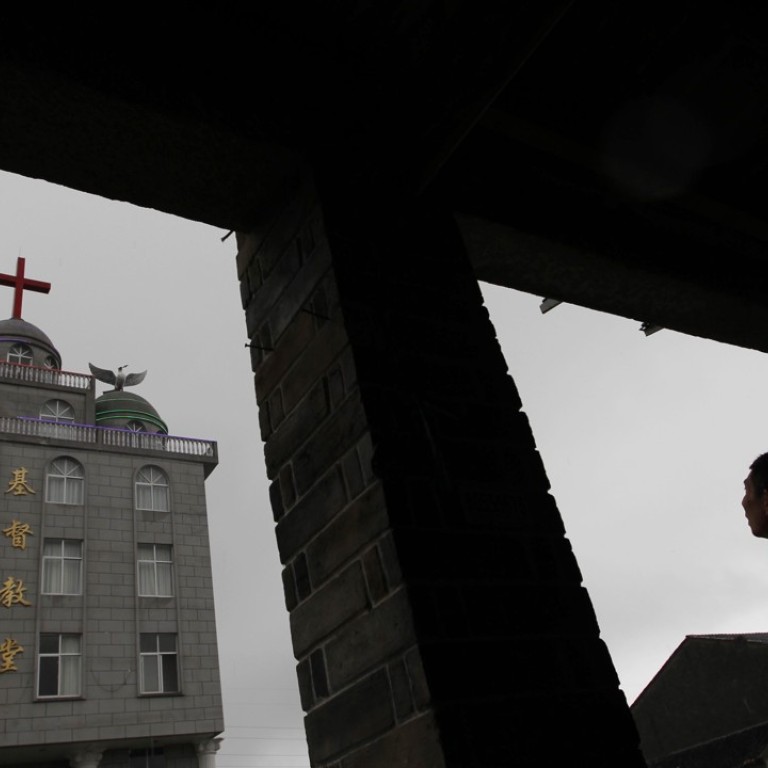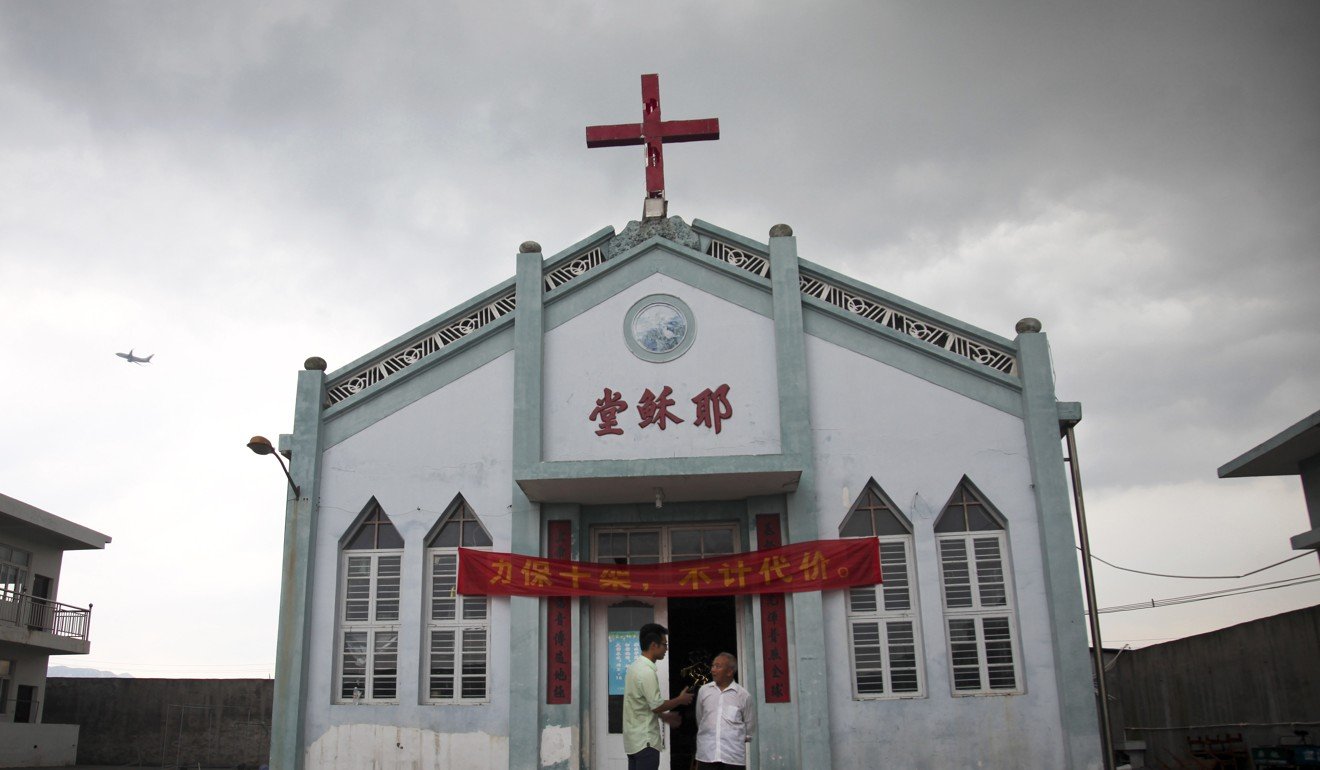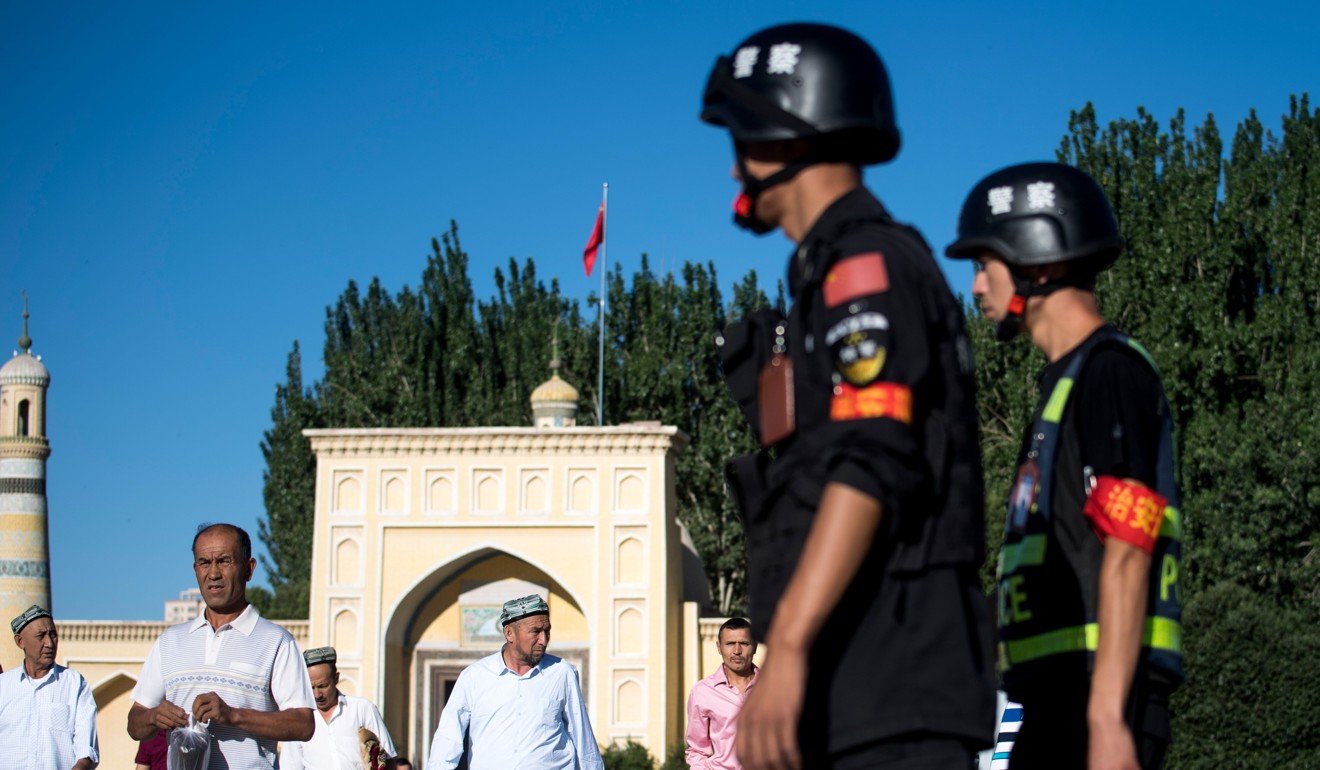
China’s religious groups brace for tighter scrutiny closer to home
State Council backs new rules allowing lower-level authorities to keep an eye on faith communities
Members and organisers of China’s religious communities will face closer scrutiny from lower-level governments and hefty fines for unsanctioned activities with ramped-up regulations to come into effect early next year.
The government will also tighten up control over religious activities in schools, religious postings online, and trips overseas for religious training.
After a delay of more than a year, the State Council, China’s cabinet, endorsed revisions to the 2005 Regulation on Religious Affairs on Thursday, ushering in sweeping controls designed to “eradicate extremism”.
The changes apply across the spectrum, from Christianity to Buddhism and Islam, and come amid a high-profile push to “sinocise” foreign religious traditions in China.
While the regulation applies to all religions, it is expected to hit the burgeoning unsanctioned Protestant “house” churches hardest when it comes into effect in February.
Professor Yang Fengguang from Purdue University said the changes would affect all religions but the house churches “are the big elephant in the room”.

“The hardliners won. The final version looks more restrictive than the revised draft that was released for public feedback,” said Yang, who estimates there are at least 93 million Protestants in China.
The release last year of draft amendments stipulating that organisers of unapproved religious activities in China would face fines of up to 300,000 yuan (US$46,000) drew strong opposition from China’s religious bodies, especially from the house churches. Previously organisers of such unapproved religious events had been subject to fines of up to three times the cost of the activities.
But on Thursday, the State Council endorsed the penalties, adding that anybody providing a venue for an “illegal religious event” will face a fine of between 20,000 yuan and 200,000 yuan. Licences could also be revoked if education facilities are used to for religious activities outside sanctioned religious schools.
The Protestant house church movement has thrived in the last two decades, particularly in rural areas, as the government has turned something of a blind eye to their activities, but Beijing has been stepped up control in the past five years under President Xi Jinping.
In addition to the fines, the revised regulation expands the role of county, township and village governments in controlling religious activities. In the past, only religious affairs administrations and some units in the United Front Work Department were responsible for unsanctioned religious groups, Yang said.
“The ordinance carries a new additional clause clearly stating that grass-roots governments down to the level of the township are allowed to implement the regulation. This clearly shows controls are being stepped up but there is still a question over how feasible it is to implement at that level,” he said.
Imam An Jianlong, of the official Nanjing Islamic Association, said he welcomed the changes because they would regulate “the messy grass-root religious activities”.
But he expressed concerns over excessive application of the rules by lower-level authorities.

A Guangzhou-based Christian said it would be worrying if the authority extended down to such a level. “We are exposed to them while they operate in the dark so there is only so much we can do,” she said.
State-run Xinhua said the changes were to counter problems in religion at home and abroad.
“The ordinance further regulates religious affairs management by protecting the sanctioned, curbing the illegal and extreme, fighting infiltrations and cracking down on criminals. [It will] also strengthen monitoring over religious property, regulate religious information on the internet while spelling out legal liabilities,” Xinhua said.
The amendments are also an attempt to tackle security concerns, with a clause stating that “organisations or individuals are not allowed to create conflicts between different religions, within a religion or between believers and non-believers”. It also said any kind of support for extremism or use of religion to carry out terrorist or separatist activities was banned.
The Guangzhou-based Christian said her church of more than 400 people was preparing to skirt the changes.
Carsten Vala, an associate professor of political science at Loyola University Maryland, said China was trying to isolate religions from their international communities so they would be easier to control.
Religions with overseas roots, such as Christianity, Islam and Tibetan Buddhism, were more likely to be targeted in the suppression, Vala said.
Additional reporting by Viola Zhou

